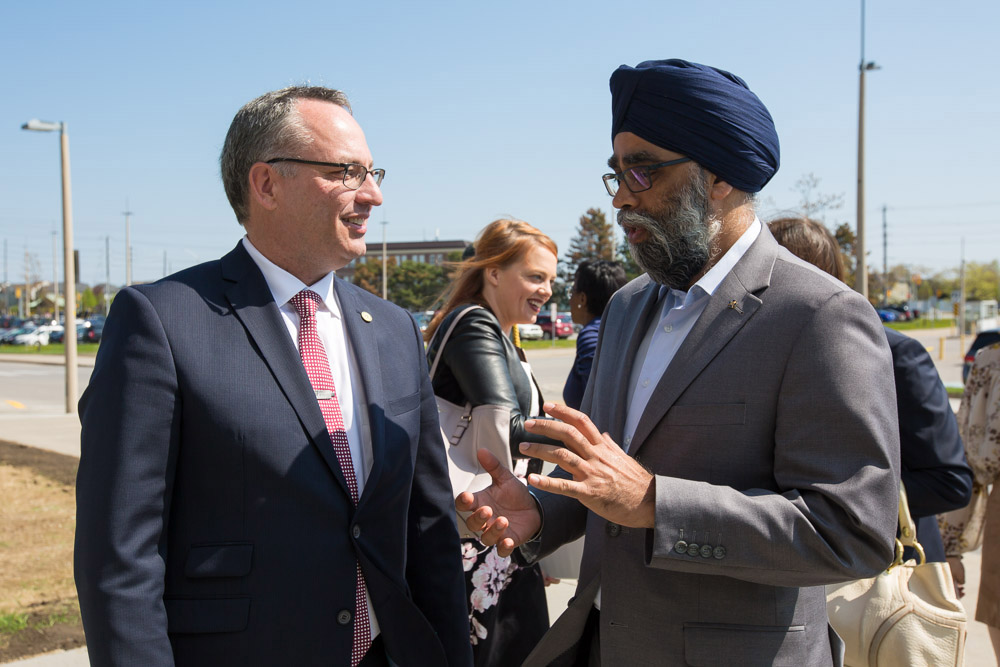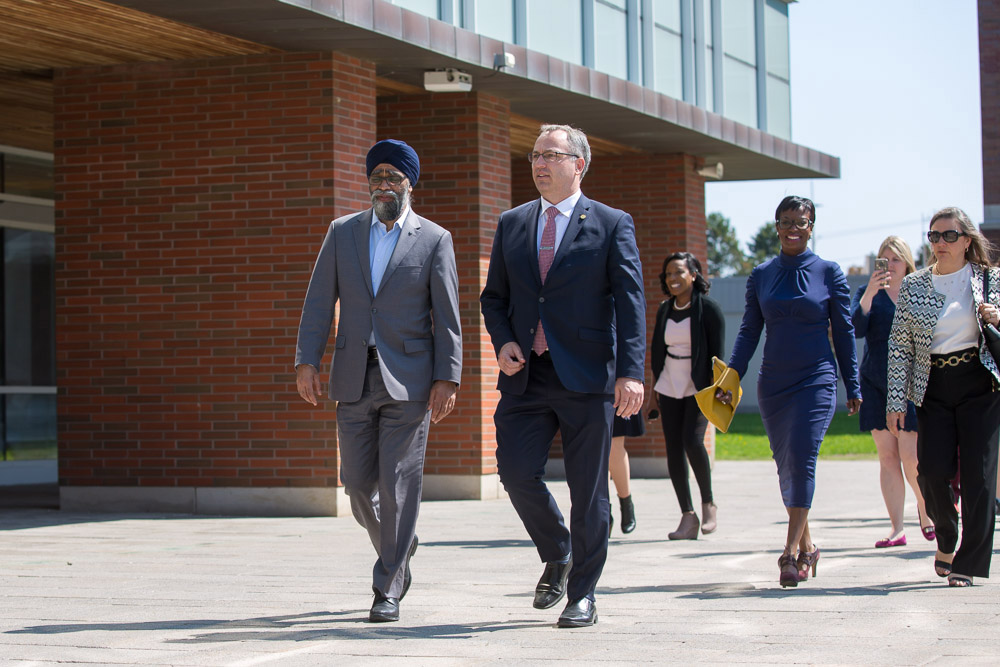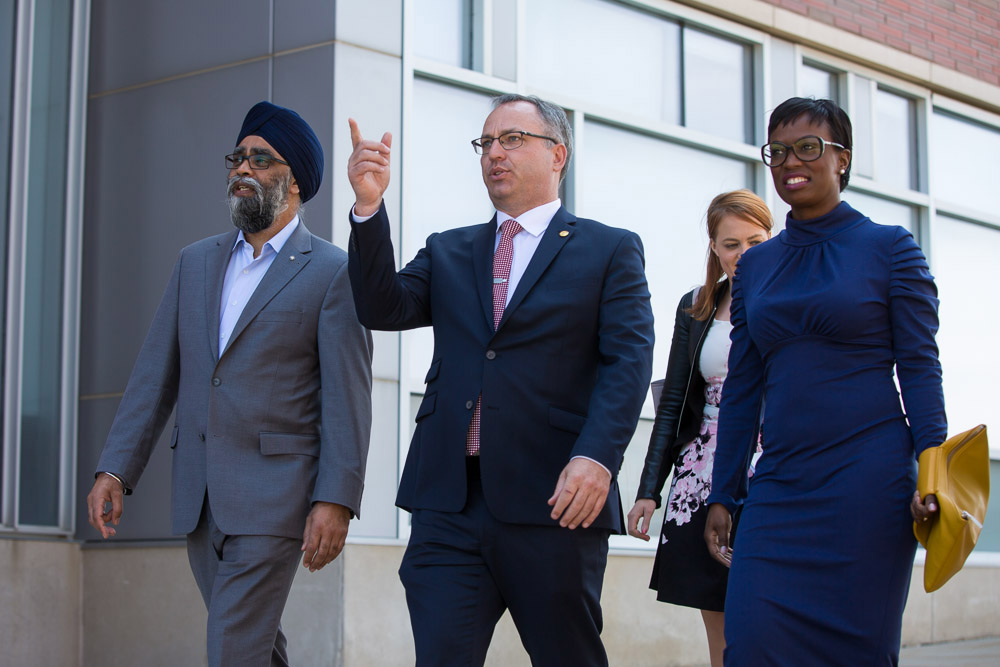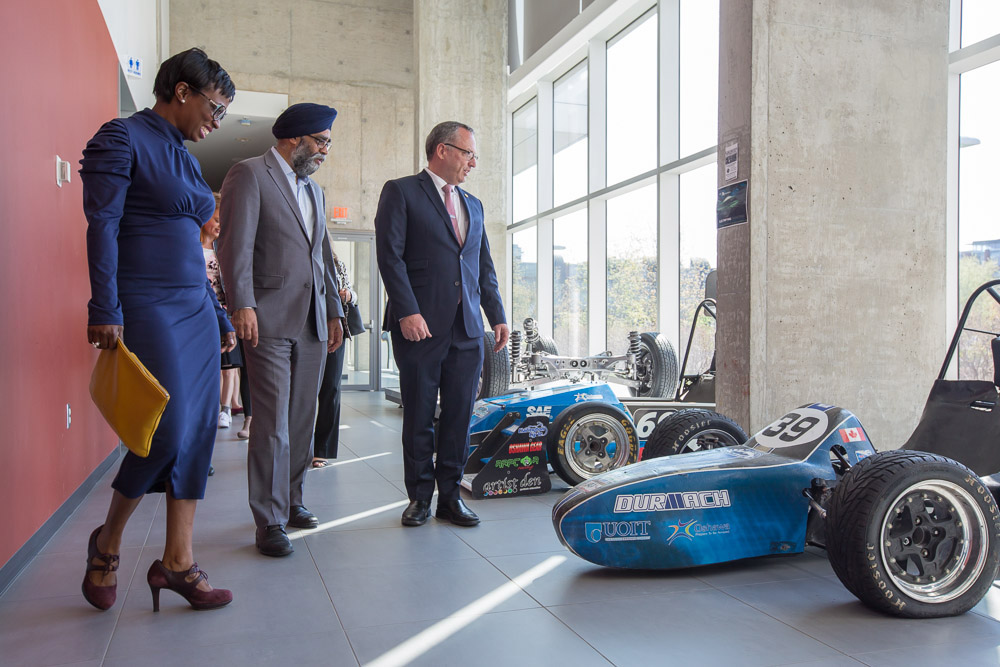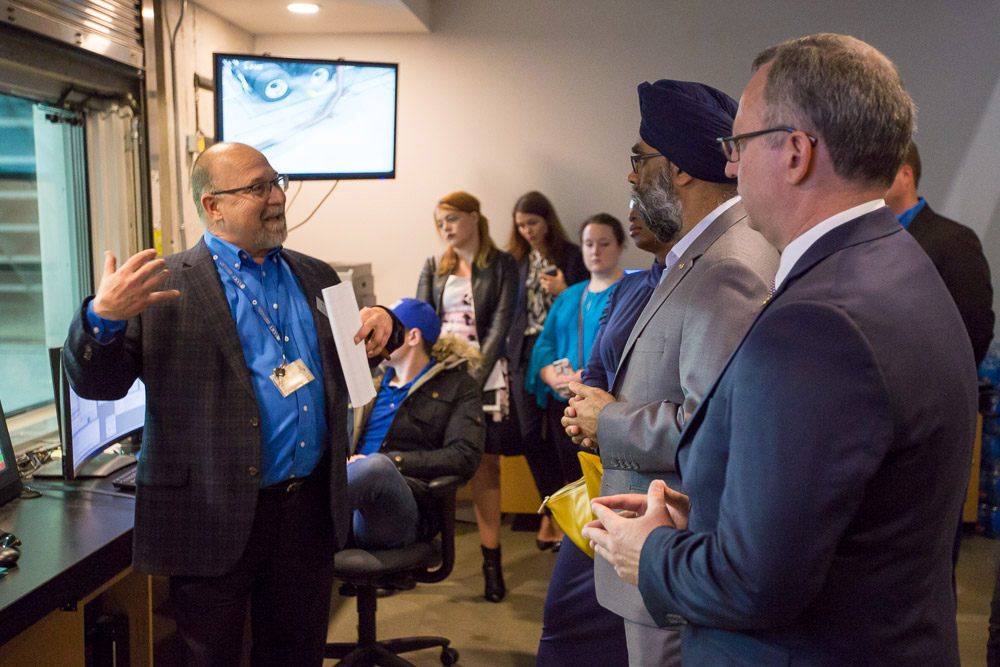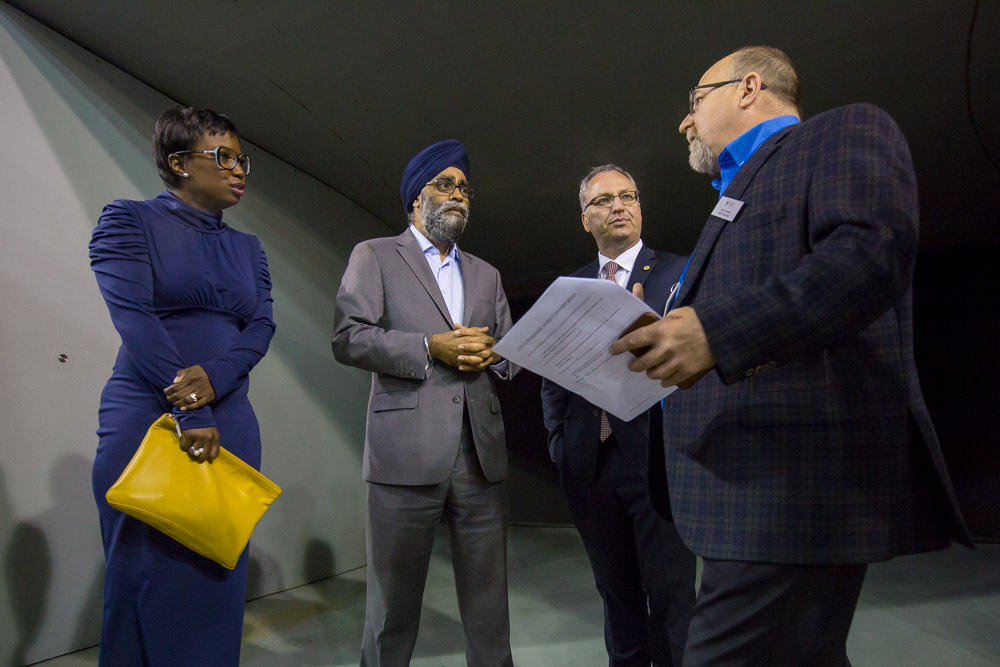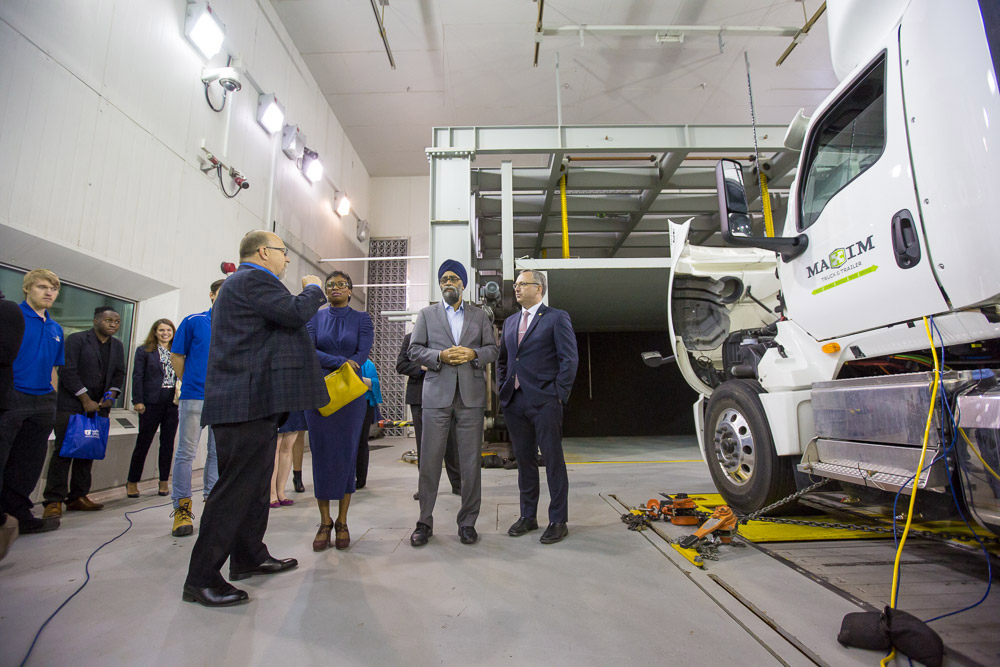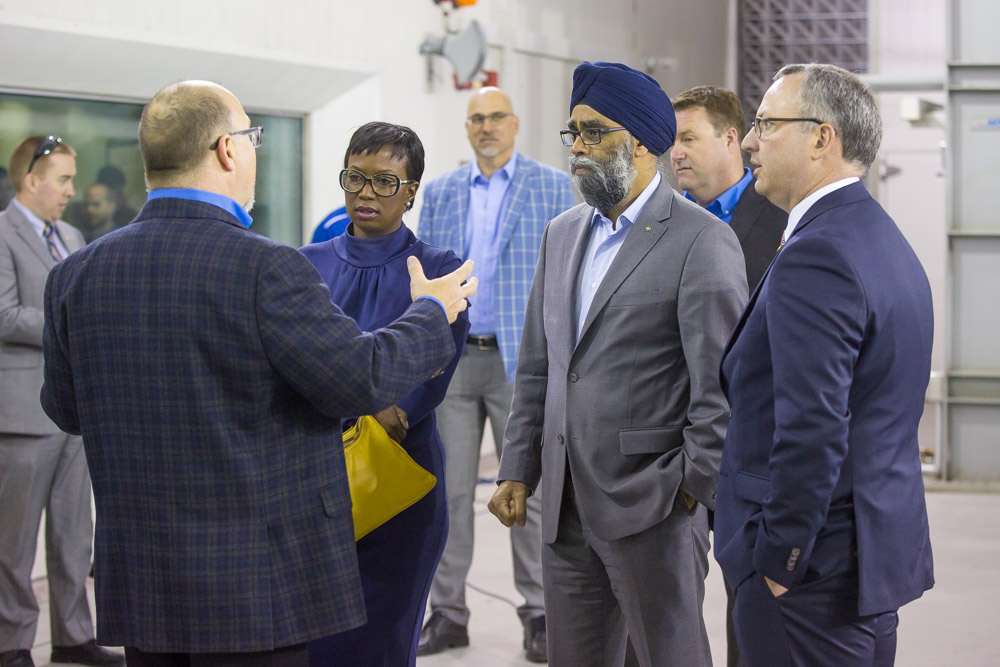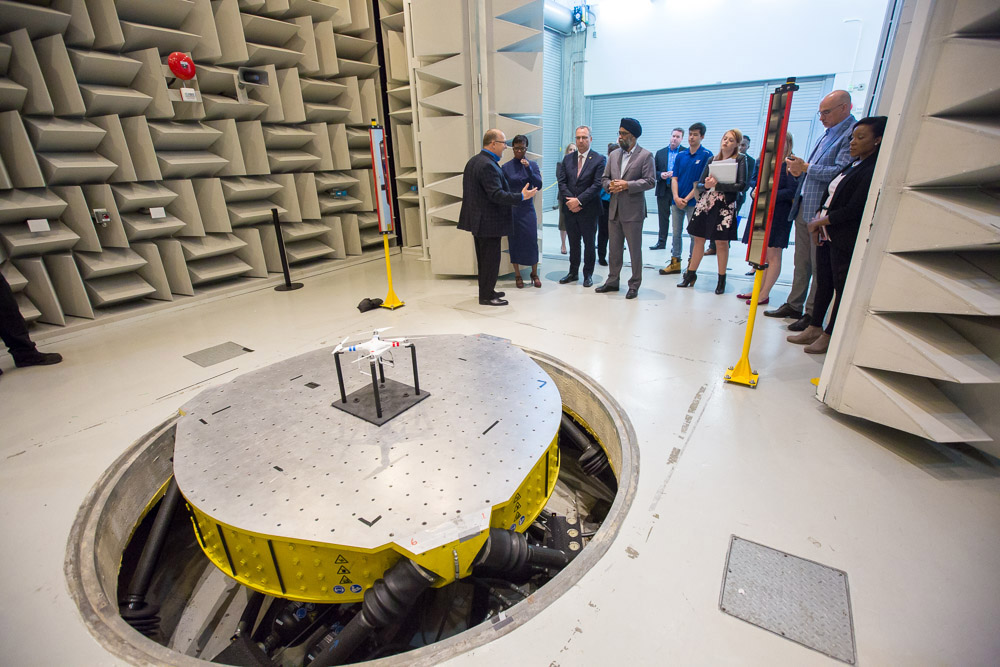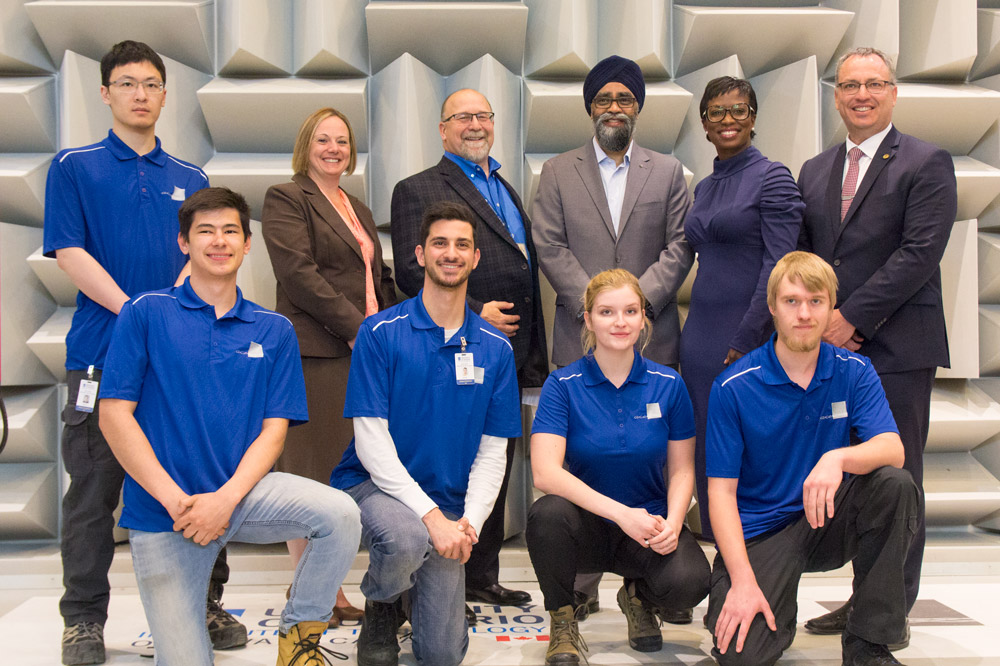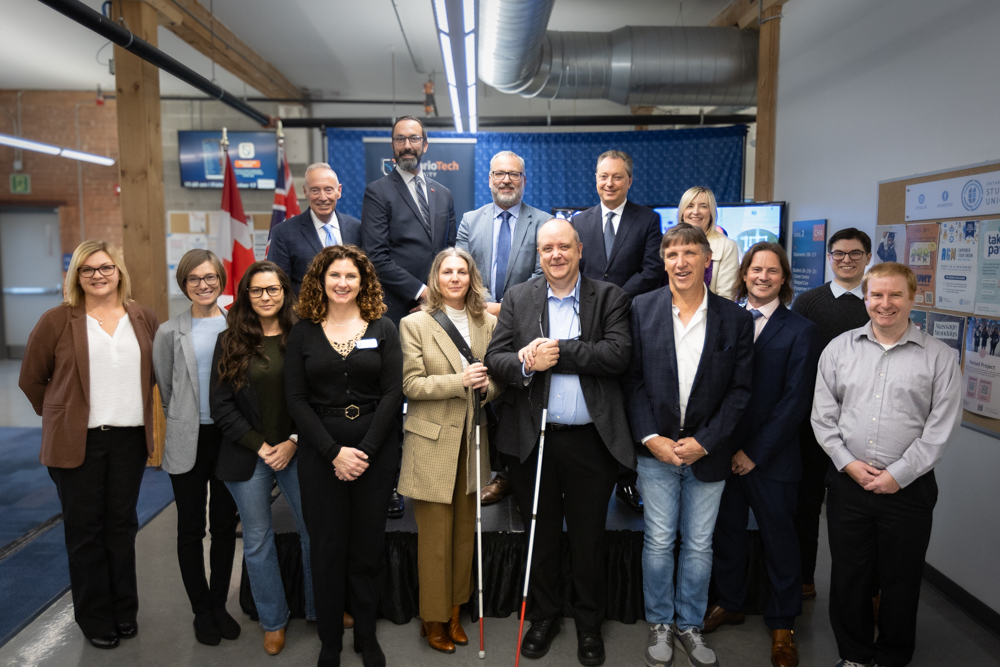University could help Canada’s armed forces ‘weather’ future challenges
Canada’s Minister of National Defence tours university’s ACE research and development facility
May 22, 2018
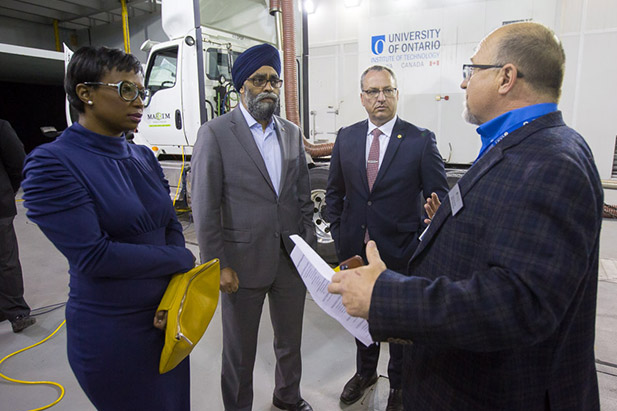
Severe snowstorms, scorching-hot temperatures, arid deserts and humid jungles: members of the Canadian Armed Forces may experience some or all of these extreme conditions in their careers. Regardless of climate or terrain, soldiers must be prepared to perform at the highest level, both physically and cognitively. Military vehicles must also be able to operate at peak performance in the harshest of environments.
The one-of-a-kind ACE facility at the University of Ontario Institute of Technology recreates some of the most extreme weather conditions imaginable—and that’s what makes it the ideal place to put military personnel and equipment to the ultimate test.
On May 16, the university welcomed The Honourable Harjit Singh Sajjan, Minister of National Defence and Celina Caesar-Chavannes, MP, Whitby, for a tour of ACE. The tour highlighted some faculty research that could enhance the work of soldiers and weather-test military equipment:
- Human biophysical measurement and real-time analytics
- Carolyn McGregor, PhD, Professor, Faculty of Business and Information Technology
- Michael Williams-Bell, PhD, an alumnus of the university’s Applied Bioscience doctoral program (class of 2016), Adjunct Professor in the university’s Faculty of Health Sciences, and Professor in Durham College’s School of Health and Community Services
Dr. McGregor and Dr. Williams-Bell are creating innovative ways to assess resilience and development to highly stressful situations within extreme environments using Dr. McGregor’s Athena Big Data analytics platform, the companion to her Artemis platform. Biometrics are collected using Hexoskins (tight shirts with multiple sensors).
- Impact of extreme environments on cognitive function
- Bernadette Murphy, PhD, Professor and Associate Dean, Research and Graduate Studies, Faculty of Health Sciences
- Michael Williams Bell, PhD, an alumnus of the university’s Applied Bioscience doctoral program (class of 2016), Adjunct Professor in the university’s Faculty of Health Sciences, and Professor in Durham College’s School of Health and Community Services
- Andrew Hogue, PhD, and Bill Kapralos, PhD, Associate Professors, Faculty of Business and Information Technology
Dr. Murphy and Dr. Williams-Bell work with Dr. Hogue and Dr. Kapralos to develop serious games to evaluate the degradation of cognitive function under high-heat and high-workload environments. The goal is to be able to use serious games to train first responders and military personnel so that their cognitive function is more robust under conditions of thermal stress and fatigue, and to contribute to the understanding and refinement of field safety guidelines.
- Impact of extreme environments on skeletal muscle response
- Nick La Delfa, PhD, Assistant Professor, Faculty of Health Sciences
Dr. La Delfa plans to research environmental impact on muscle fatigue and dexterity (e.g. exposure of fingers to cold temperatures).
- Impact of extreme environments on physiological responses and performance
- Heather Sprenger, PhD, Assistant Professor, Faculty of Health Sciences
Dr. Sprenger's research focuses on the areas of nutritional and environmental physiology to enhance training adaptation and performance. She currently works with Olympic athletes to better prepare them through adaptation and acclimation for competing in extreme environmental conditions.
- Tire-soil interaction research
- Moustafa El-Gindy, PhD, Professor, Faculty of Engineering and Applied Science
Over the last six years, Dr. El-Gindy completed 12 research projects for General Dynamics Land Systems in London, Ontario to research new control systems and tire-soil interactions for the deployment of new light-reconnaissance vehicles in different types of terrain. In 2017 and 2018, teams of Capstone students under his supervision designed an electric 8x8 combat vehicle (fully-functional smaller model of a military vehicle).
Product and equipment R&D
The visitors also learned about current military testing and research at ACE:
- Military vehicle testing in the ACE CWT and Large Climatic Chamber
- Heating, ventilation and air conditioning (HVAC) system development.
- Power pack (engine) testing under high loads and temperatures.
- HVAC system noise and performance testing on the Multi-Axis Shaker Table.
- Quiet ATV development
- Running on a 1,000 horse-power chassis dynamometer, the ATV undergoes a series of tests to reduce exhaust noise.
- Vibration testing for military equipment
- Ground vehicle vibration simulation.
- Ship-borne motion simulation.
- Shipment/drop (impact) test simulation.
- Functional testing after exposure to high wind speeds.
- Hydrogen fuel-cell development for locomotive application
- Developed protocol for safe hydrogen fuel-cell handling and testing in the LCC, directly relevant for military applications.
Quote:
“The University of Ontario Institute of Technology was honoured to welcome Minister Harjit Sajjan and MP Celina Caesar-Chavannes to ACE. We are proud to showcase our advanced development, testing and evaluation projects that have the potential to enhance the Canadian Armed Forces’ capabilities in the harshest of climates.”
- John Komar, Director, Engineering and Operations, ACE
